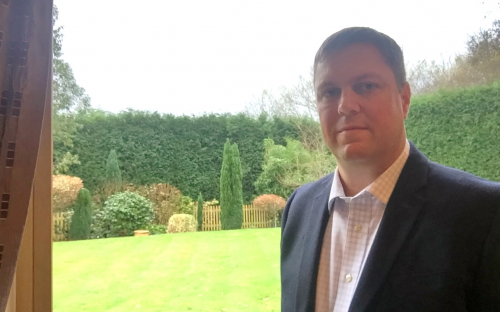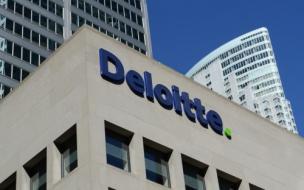His place in the booming cloud business arena has been energized by a degree at Hult International Business School. As well as diversity, group projects and a focus on current business topics, Steve valued an opportunity to work on an eight-month consulting project for IBM on cognitive computing.
His team had to think of new ways to leverage IBM’s Watson, the Jeopardy-playing supercomputer, to create revenue generating business opportunities for the IT group. It taught him how to generate, pitch and justify business ideas to board-level executives.
A passion for technology and innovation stems from his career as an engineer. The former computer systems student, who also has a degree in criminal justice, previously worked as a server systems administrator for Pepsi Bottling Ventures, the US’ largest manufacturer of the fizzy beverage.
Where does your passion for technology and innovation stem from?
My mind-set is to embrace change and continuous improvement, which drives my passion for innovation and technology.
I also love gadgets. And when new products enter the market and offer up new and unique experiences that were not previously dreamed possible.
What was the greatest challenge you faced in managing data center assets at EMC?
The size of the data center environment I worked in at EMC was beyond massive. My team was responsible for over 1,000 EMC storage systems and each storage system could hold up to 2,000 hard drives. And that’s just the drives. We were responsible for millions of individual hardware assets including all storage system, server, network and rack components.
The biggest challenge in managing all of these assets was putting the business processes and accountability in place to ensure correct location-based inventory.
Communication was obviously important. My team managed equipment moves and replacements and had to work extremely closely to inventory, logistics and engineering teams to properly document asset movements in inventory databases.
What are the key skills adaptable from your career as an engineer to business management?
I think some of the soft skills such as team management and leadership in an international context, are most definitely adaptable in business management.
But one thing in particular I took away from my time as an engineer at EMC, is the need for quality in all things. At EMC and before that when I was working for Pepsi Bottling Ventures, quality meant having a meticulous eye on all aspects of the products we sold and the people that made the products.
Why should prospective MBAs consider Hult International Business School - what are its strengths?
There are two major strengths of Hult which I appreciated most. Its diverse student body was the first. In London we had roughly 110 students in the full-time MBA program and I would guess 60 nationalities.
This made every student and each of our small work groups unique. Working in small groups for class projects offered so many varied perspectives on global business issues that it often presented unanticipated challenges when trying to reach a consensus. But ultimately, this taught us global awareness.
The other strength I valued from Hult was its real-time international business focus. Hult’s curriculum gave us insight into today’s business world through classes that focused on disruptive innovation, organizational behavior in an international context, and how the mentality of society is evolving and triggering changes in business.
I also appreciated that our professors were willing to adapt course material when new global business events warranted class discussion.
Tell us about your cognitive computing consulting project with IBM.
It was part of the Hult Impact Challenge (HIC). Hult gave students the freedom to choose their own project focus — such as social entrepreneurship, entrepreneurship or corporate tracks — and also allowed students to choose their own teams.
I naturally chose the IBM cognitive computing project because it had a technology focus. It was designed for Hult students to think of new ways to leverage IBM’s Watson and its cognitive computing capabilities to create revenue generating business opportunities for IBM.
My team’s idea was based on cognitive, high-end and unique travel experiences — targeting the upper class. It was a GREAT idea! Once we formed it, we had to build the business case to IBM through exercises such as primary and secondary research, identifying target markets and revenue/profit projections.
Sadly my team’s idea did not win the competition, but still the HIC project was invaluable to me because it taught me how to generate, pitch and justify business ideas to board-level executives.
RECAPTHA :
0a
f4
d0
ad








